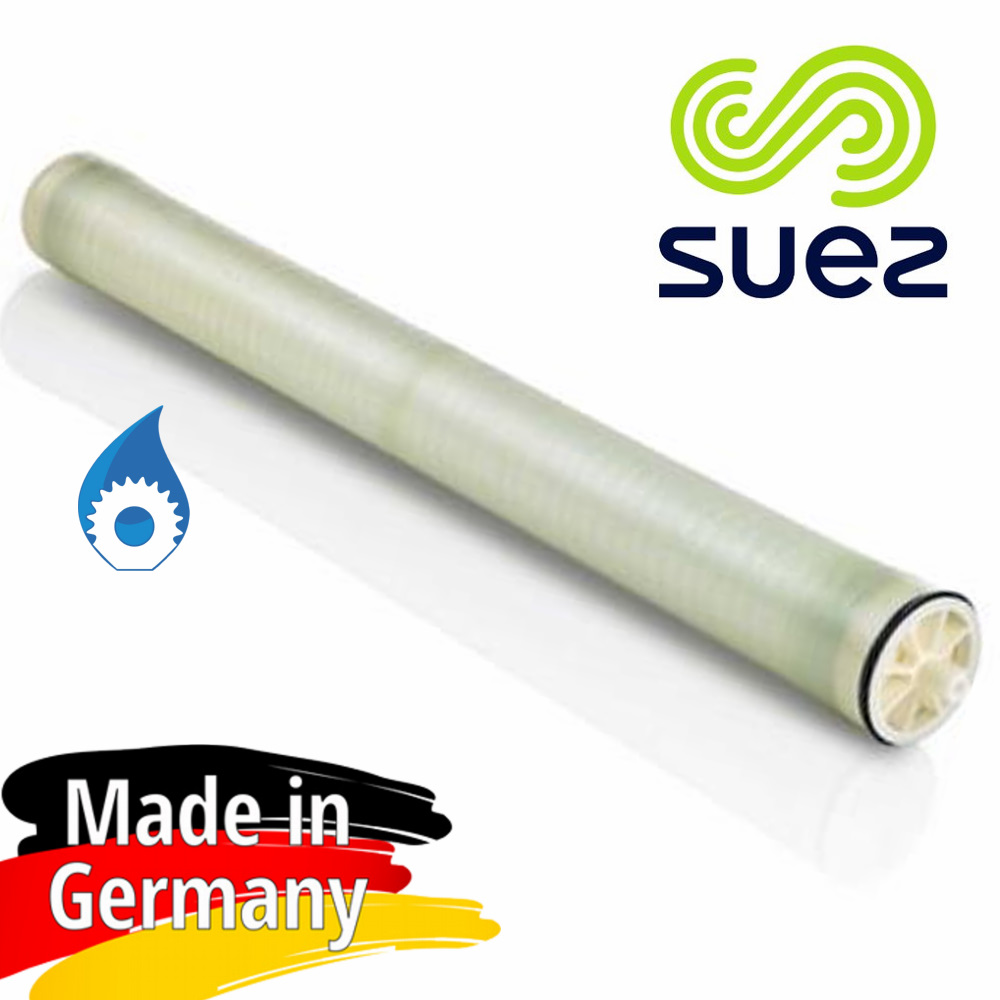RO Membrane
The RO (Reverse Osmosis) membrane is a critical component in RO water purification systems and offers several advantages due to its unique filtration properties. Here are the key advantages of an RO membrane:
Effective Removal of Contaminants: RO membranes are highly effective at removing a wide range of contaminants from water, including dissolved solids, ions, minerals, heavy metals, bacteria, viruses, and organic compounds. This results in clean and safe drinking water.
Desalination: RO membranes are particularly efficient at desalting seawater or brackish water, making them an essential component in many desalination plants, providing freshwater in regions with limited freshwater resources.
High Rejection Rate: RO membranes typically have a high rejection rate, removing 90-99% of dissolved impurities, depending on the membrane's quality and the specific contaminants present in the water.
Improvement of Water Quality: RO membranes can significantly improve the taste, odor, and clarity of water by removing substances that contribute to undesirable qualities, such as chlorine, salts, and minerals.
Pathogen Removal: RO membranes are effective at removing many bacteria and viruses, contributing to the production of microbiologically safe drinking water.
Chemical-Free Purification: Unlike some water treatment methods that rely on chemicals for purification, RO membranes provide a chemical-free process, making them an environmentally friendly and natural water treatment solution.
Compact and Modular Design: RO membrane modules are typically compact and modular, allowing for easy scalability to meet specific water treatment requirements. This makes them suitable for both residential and industrial applications.
Long Lifespan: With proper maintenance and regular cleaning, RO membranes can have a long lifespan, offering cost-effective water treatment over time.
Low Energy Consumption: RO membranes are energy-efficient, requiring relatively low power consumption compared to other water treatment methods, such as distillation.
Reduction in Bottled Water Usage: The use of RO membranes in residential systems can reduce the need for bottled water, thereby decreasing plastic waste and environmental impact.
Customizable Filtration: RO membranes come in various configurations, allowing users to select membranes with specific pore sizes and filtration capacities tailored to their water quality needs.
Improvement in Industrial Processes: RO membranes are widely used in various industrial processes, including pharmaceuticals, food and beverage production, and wastewater treatment, where they play a crucial role in maintaining product quality and process efficiency.
While RO membranes offer many advantages, it's important to note that they are not without limitations. They can produce wastewater during the filtration process, and they may remove beneficial minerals from the water. To mitigate these drawbacks, some RO systems incorporate re-mineralization stages and water-saving features. Regular maintenance, including membrane cleaning and replacement, is also essential to ensure the continued effectiveness of RO membranes.




